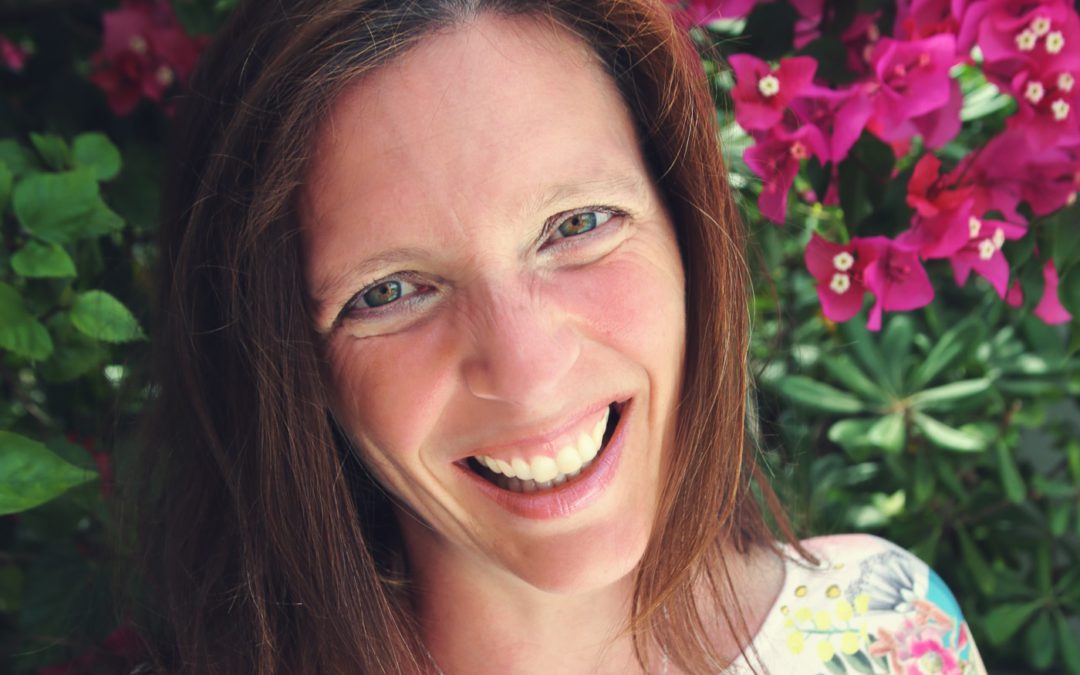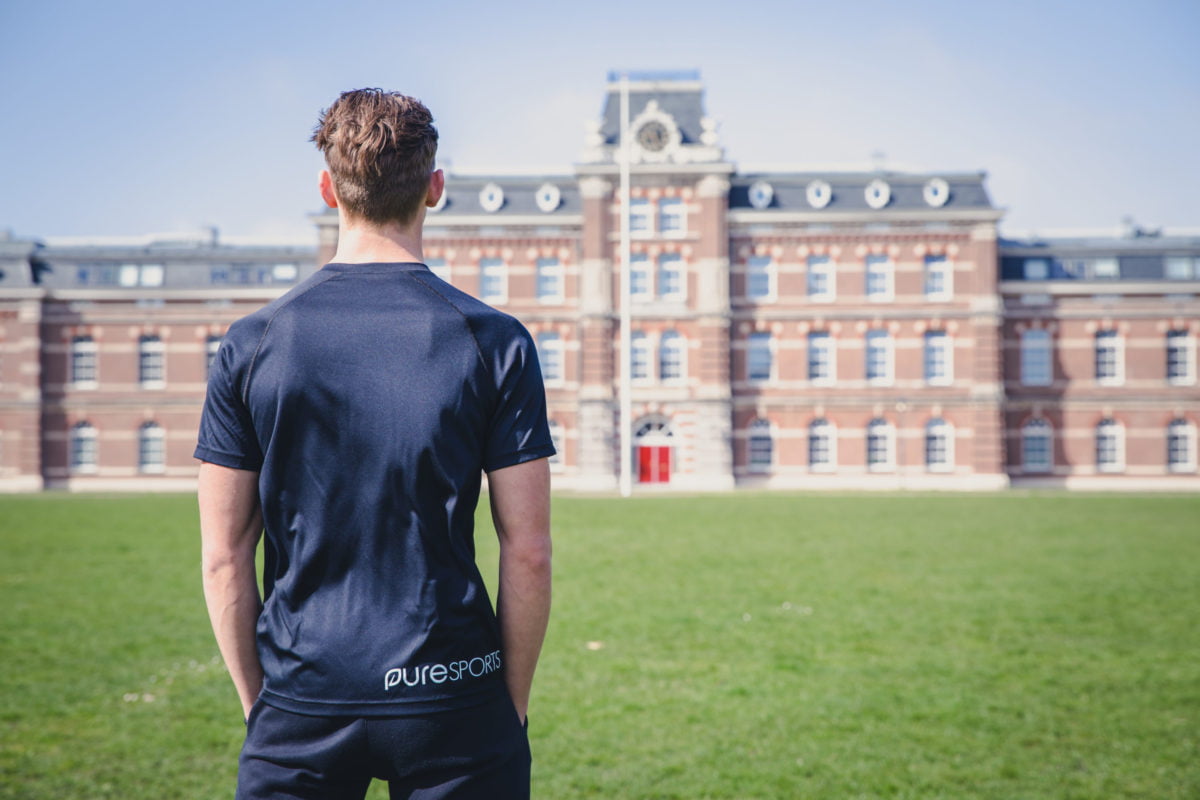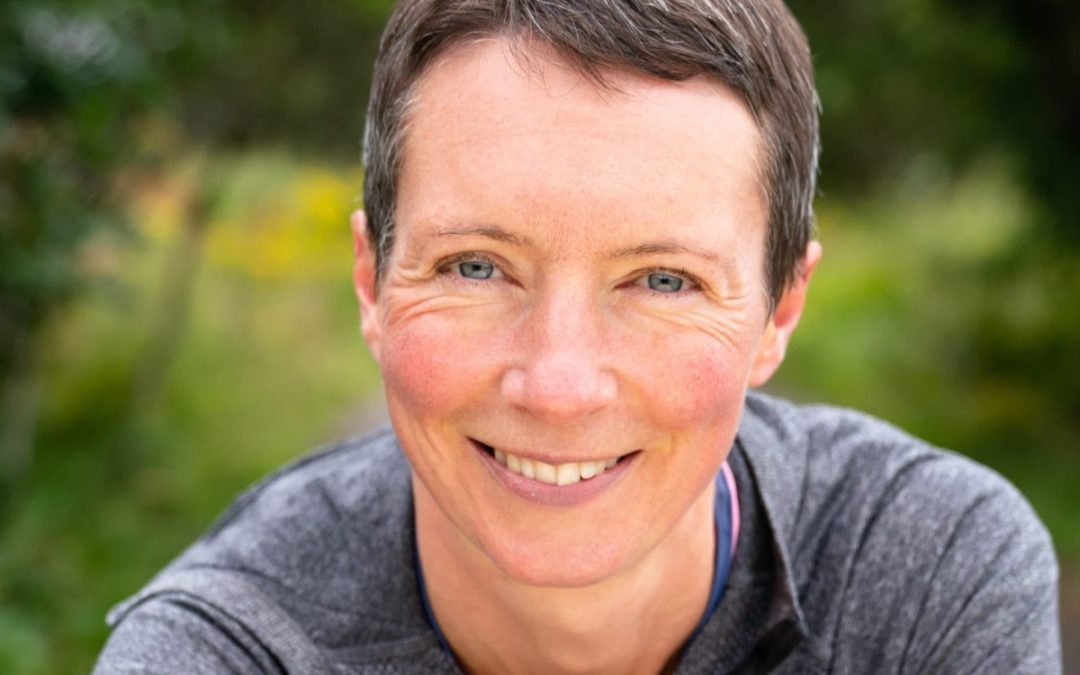A Bit About the Founder, Daniel Morales Valdivia
I studied business engineering, which is a mix of IT engineering and industrial engineering. I did this in Peru, before working in the mining industry for five years. While working there, I set up the corporate asset management department for Buenaventura, the country’s largest precious metals mining company.
After my time in the mining sector I became really interested in entrepreneurship, and so I went to the University of Cambridge to pursue my MBA and transition into that world.
About the Business, Unlimitech
With alumni from the University of Cambridge, I set up Unlimitech in Cambridge in early 2020. Unlimitech was officially born from the idea of wanting to develop a platform technology that enables anyone to access the same kind of professional-grade performance and nutrition information elite athletes can access.
Supported by the Cambridge Judge Business School’s Entrepreneurship Centre through its Accelerate programme, we trialled our first prototype Smartmask indoors soon thereafter.
The Smartmask is a wearable fitness tracker that analyses breathing in real-time to provide high-precision metabolic information through a companion mobile phone application that pairs with the device. The mask can be used during training or at rest, depending on the type of information you want to measure.
It essentially replicates the types of tests carried out at sports laboratories, to provide information such as maximum oxygen consumption, precise calorie-burn counts, resting energy expenditure, etc.
Why did you set up Unlimitech? What were you looking to do both on an entrepreneurial and personal level with running your own business?
You know, I didn’t have a strong interest in becoming an entrepreneur for most of my life, which seems strange to me now because my family does have a history in entrepreneurship.
My grandfather was a civil engineer and an entrepreneur, my father a successful manager and entrepreneur and, for some reason, I never really imagined myself doing this for a long time. But as time went by, and I grew older and got more work experience, I became interested.
Maybe I required that previous work experience to better understand what it would really mean for me, both professionally and personally, to start a venture. And by the time I was getting ready to do my MBA, I already knew that was exactly what I wanted to do. But Unlimitech was certainly not my first attempt at starting a venture.
I got myself involved in other ventures before, and this previous experience was extremely valuable. My involvements were not only as co-founder, but also as first employee and as advisor. I was trying different ways of kickstarting my entrepreneurial career.
I believe my background in business and technology — information technologies in particular, give me a useful set of transferable skills. I felt these skills could be put to good use in nearly any industry, though perhaps software, data and hardware made the most sense.
So, while kickstarting my entrepreneurial journey, I didn’t necessarily see myself as the person coming up with a bright idea and directly working in its development, but as the person who could come in to help better understand how an idea and its technical background could be shaped into a successful business.
And that’s the strategy I committed to back then: partnering up, finding someone who had been working on a particular problem and who has a deep understanding of that problem from a technical point of view, and then working together to go from “a great solution” to a viable business, which is of course hard and not always possible. So a business requires much more in addition to a new technology or scientific discovery.
When you set Unlimitech up, what kind of sparked the idea for it? What were you hoping to achieve for your market and your consumers when setting it up?
When Unlimitech actually started, before it officially launched, we had a completely different idea in mind. We were working on a concept for people with Type-1 Diabetes, a breath analysis monitor that patients would use to measure themselves during sleep in order to predict the appearance of a potentially harmful condition associated with this disease. It was a preventative medicine device.
Around two months of work into it, we realised that while from a technical perspective the idea was great, the business financials just didn’t make any sense.
I had a chat about this with my co-founder at the time, and after staring at the numbers together we sat in silence for what felt like the longest time. Then, I looked at him and told him: “Okay, this is really bad, I know. But we can either shake hands and leave it there, or we can start thinking about how we overcome this”.
As we already had a basic concept for a mobile breath analysis device, we decided the best way forward was to look for somewhere else where this technology could be useful. That’s when we started connecting the dots and realised there was a huge opportunity in the sports sector, and then in the nutrition and wellness sectors. It was amazing to see all this new untapped potential.
I consider this Unlmitech’s first step towards what it is today.
What/Who has helped you along the way to continue to grow and evolve?
Before starting Unlimitech, one of the key lessons I learned was that, even though I had a strong set of transferable skills, not every industry would be a good fit for me personally. One of my previous experiences, for example, was in a biotech venture project. I learned that this type of venture presents a set of unique challenges to whoever leads it, and I do not feel I was well equipped for those challenges. Although the project didn’t make it in the end, understanding my own personal fit better made it worth the hard work.
But the most valuable lesson I’ve learned along the way is learning to say “no”. I think when you’re starting a business for the first time you start with a lot of enthusiasm and a very open mindset, which makes it easier to be flexible about almost every aspect of starting that business. In practice, this often becomes a problem. So learning how to say no about different aspects of the business, I’ve found, is absolutely crucial. It’s like breaking when you’re learning to drive, and all you want to do is go as fast as possible.
It’s essential to pivot, to know how to recognise when that is necessary, and to see the opportunities available well ahead of time. I would bet most people that have started a successful business have pivoted it along the way at least a couple of times.
When I say pivot, I’m not talking about changing a minor element of your business model; it’s more like changing your target market, the way the business generates revenue, or even your understanding of the fundamental problem you’re trying to solve, which of course affects everything else.
I’ve been able to learn a lot through my own business, but I’ve also been fortunate to learn a lot through open conversations with many other entrepreneurs, both in the UK and overseas, including in my home country of Peru.
One thing that often stands out to me in conversations with early-stage entrepreneurs is they’re usually really smart, and often have STEM backgrounds and research experience themselves or through someone else in their team. Also, it’s common that their ventures start as academia or industry spinouts.
However, one early-stage pitfall I’ve observed is that sometimes the founders fall in love with the initial version of the technology or solution they are proposing, and this makes it really hard to adapt and pivot. You do have to be passionate about your business, but as a founder or CEO it’s also your job to keep the venture grounded in reality and make changes when necessary, even if they’re hard.
I’ve also observed that founder CEOs with a strong technical background sometimes struggle to delegate product development and fully assume the role of CEO. The startup CEO’s job is not only to ensure the development of the product. It is to connect the dots ahead of time. To lead the way through the many challenges that the business needs to overcome. To promote the business. To ensure the availability of the funds and resources that the business requires in order to execute its offerings. To identify how the business can grow healthily over a long period of time, while creating and delivering significant value to all its stakeholders, etc.
“Oh well, yeah, sure. That’s obvious, right? That’s what you would need to do.”. But, when you are in the fray of running a startup, you can easily lose sight of these things; you get caught in the day to day. This is why I have a really valuable, good network of friends, colleagues, and mentors — people outside my day-to-day. People who I can talk to openly and, for me, this really helps me keep everything on track.
In the early days, I didn’t have any external support. I couldn’t imagine myself now without some form of guidance, not only for Unlimitech, but for myself personally. I think the startup journey allowed me to discover the power and value of having mentors.
Good mentors who can coach you on your venture are a game changer. And, if you can find good mentors that not only coach you on your venture but coach you personally, that’s the best.
Having good mentors can save you from learning a lot of mistakes the hard way, but some things you’ll just have to learn by yourself. This, of course, varies for everyone. For me, learning to manage team commitment and expectations was challenging.
It’s very difficult. It’s a soft skill. You can read about theories, and frameworks, and tricks about it — and this is something you should definitely do if you’re trying to lead a team. But, ultimately, people are complex and you will only learn some things by trial and error.
When you’re trying to bring together a team for a startup in the very early days, there’s not a lot of resources to go around. You’re most likely not going to be able to pay salaries for some time. You are paying back with vision, shares, and promises of a future return. Keeping everyone committed and productive without many resources is tricky. So you have to constantly keep an eye out: Caring for their wellbeing, their comfort with what they’re doing, managing their morale, making sure that they are always up to facing the new challenges that pop up day to day, managing how they are keeping up with everything.
At the same time, you are the head of the company. You want to have a good relationship with your team, but your ultimate concern as the leader of the company is the achievement of the company’s long-term goals, whatever those may be, and so you must ensure people deliver on their targets with the level of quality those need to be delivered at. There’s a fine balance to this. Sometimes, it gets very tricky.
On another subject, I think there’s a sort of popular myth on how startups come to life: two or three people meet randomly (maybe over a drink), they start talking about business, and after ten minutes of conversation they discover the next big idea that will change the world. Two years later, they’re all multimillionaires and everything is great. Somehow, it all just happens to work. My observations suggest, however, successful founders actually leave little to chance: almost every step of the way is carefully planned ahead.
Everything can change in a venture: Co-founders change, employees change, advisors change, people change. Actually, this happens more often than people might think. People keep moving. But in a company no one is, as they say, indispensable, so you can always overcome this.
This might be hard to hear for some people. For me it is hard to accept as well because my personality doesn’t naturally match this idea. I would love to be able to start and end a venture with a good team that always manages to stick together through good and bad, no matter what. But the reality is that in practice, that is often not possible.
Do you have ‘mindset musts’ that you swear by?
One common thing about the entrepreneurial lifestyle is that emotions are amplified a lot: every battle you win feels like a huge success, and everyone you lose may feel like a disaster.
There are lots of ups and downs along this journey. It’s like a rollercoaster. What affected me a lot, in the beginning, was not putting a conscious limit on how much I would allow these events to affect me emotionally.
The startup, especially in the early days, can easily become your everything. It’s your baby. At the same time, you have to try and remain emotionally detached; at least to some extent. You have to be very careful in terms of how much you let these ups and downs affect you because at the end of the day you’re leading the company, and to lead, it’s always better to keep a cool head.
Learning to control that aspect of the emotional relationship with the startup has given me a lot of mental resilience, and I’ve become much better at quick problem solving as well because of that.
The networks, mentors and friends you surround yourself with are invaluable for this too because we’re all humans, we’re not perfect. Even though we can aim to behave more logically, more well-balanced all the time, it’s impossible to do so alone.
I feel torn here between two ways of viewing success, which I feel are both valid. In my mind, I have a way of defining success for the venture itself. And then I have a different way for defining success, more intangible perhaps, that I would say is equally important at a personal level.
What do you define as success? What does that look like for you and how do you enjoy it?
So the success of the venture, I would define as creating and delivering sustainable value to its customers and other stakeholders. “Is the venture delivering on these goals?”. If the answer is no, then no, your venture is not being successful. As simple as that.
One could draw the line there, but I have some thoughts about personal success running a venture. For example, I feel that while running Unlimitech, there have been so many obstacles we’ve already overcome, that this alone is a huge source of personal satisfaction. I’ve also learned so much, and I have grown both as a person and a professional. I’ve been able to meet and befriend exceptional people. I’ve lived amazing experiences otherwise out of reach. So, regardless of what ultimately happens to the venture, I do consider it a success in this personal way, and it has been an amazing journey so far.
Perhaps, one of the best outcomes of this success is that I’ve come to know myself much better too. I guess this happened because of how hard the journey is, but I’m actually grateful for that.
What are your top tips for anyone dreaming of setting up their own venture, struggling with getting it off the ground, or equally, are in it, but finding it hard?
I think it’s harder right now to start a venture from scratch: the global economy has taken a serious hit and, while many investors are still investing, there’s a lot of hype surrounding the pandemic.
That being said, what I would say to people looking to start a business now is to avoid doing so because of the hype. The pandemic will pass, and businesses that were built solely around it will risk passing too.
Look beyond. Find the trends that are currently being set or accelerated, but will likely remain in the long term. Don’t just think about solving a current problem — which of course could be an excellent starting point for a venture — but also think about which problems will remain or appear in the following years, and incorporate these into your vision and strategy.
I think the best entrepreneurs are, in a way, visionaries, who look beyond current circumstances.
Check out Unlimitech over at https://www.unlimi.tech/
You can also take a look at our entrepreneur empowerment movement here or over on Instagram @lionspiritmedia.





0 Comments